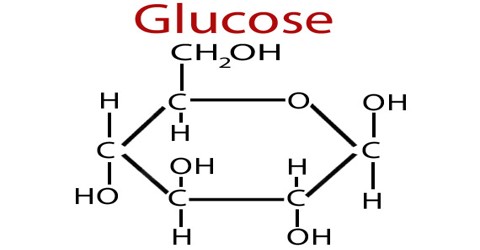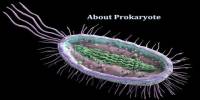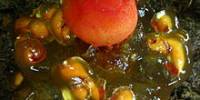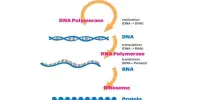About Glucose
Definition
Glucose is the energy source that the body most readily uses. Glucose is sugar that is stored in the muscle for use. The body makes glucose from all three elements of food’protein, fats, and carbohydrates’but the largest amount of glucose derives from carbohydrates. Glucose serves as the major source of energy for living cells. However, cells cannot use glucose without the help of insulin. Also known as dextrose.
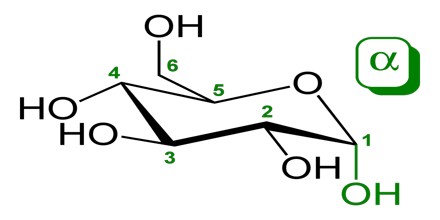
Glucose can be obtained by hydrolysis of carbohydrates such as milk sugar, cane sugar, maltose, cellulose, glycogen, etc. It is commonly commercially manufactured from cornstarch by hydrolysis via pressurized steaming at controlled pH in a jet followed by further enzymatic depolymerization. Glucose is on the World Health Organization’s List of Essential Medicines, the most important medications needed in a basic health system.
Glucose Processing in Our Body
When we eat, our body immediately starts working to process glucose. Enzymes start the breakdown process with help from the pancreas. The pancreas, which produces hormones including insulin, is an integral part of how our body deals with glucose. When we eat, our body tips the pancreas off that it needs to release insulin to deal with the rising blood sugar level.
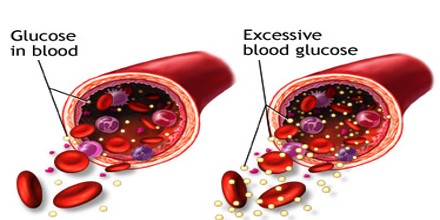
One way diabetes occurs is when the pancreas doesn’t produce insulin in the way it should. In this case, people need outside help (insulin injections) to process and regulate glucose in the body. Another cause of diabetes is insulin resistance, where the liver doesn’t recognize insulin that’s in the body and continues to make inappropriate amounts of glucose. The liver is an important organ for sugar control, as it helps with glucose storage and makes glucose when necessary. Maintaining glucose levels near the normal range is an important part of keeping our body running effectively and healthily. There are a variety of reasons that blood sugar levels can shoot up. Some triggers include:
- A heavy meal
- Stress
- Other illness
- Lack of physical activity
- Missed diabetes medications
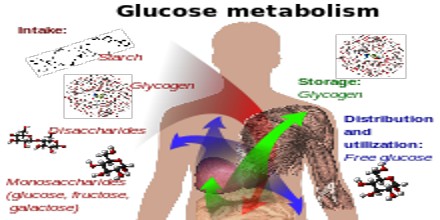
Function of Glucose
Glucose is a six-carbon sugar molecule which is highly polar and easily dissolves in water. This hexose molecule can be found in L and D conformations, but our body only recognizes D-glucose.
Energy –
Glucose is the main energy source for body cells. When cells take glucose from the bloodstream, the sugar molecule is broken down through the process of glycolysis, which converts the hexose into pyruvate. Pyruvate can be metabolized further in the citric acid cycle.
Glycosylation –
The first step of glycolysis is the phosphorylation of glucose by a hexokinase to form glucose 6-phosphate. The main reason for the immediate phosphorylation of glucose is to prevent its diffusion out of the cell as the charged phosphate group prevents glucose 6-phosphate from easily crossing the cell membrane. Furthermore, addition of the high-energy phosphate group activates glucose for subsequent breakdown in later steps of glycolysis. At physiological conditions, this initial reaction is irreversible.
Glucose Shortages –
Most body cells can utilize fats for energy in a pinch, brain cells and red blood cells rely almost completely on glucose to fulfill their energy needs. Even short periods of glucose shortages can kill these types of cells.
Precursors –
Organisms use glucose as a precursor for the synthesis of several important substances. Starch, cellulose, and glycogen (“animal starch”) are common glucose polymers (polysaccharides). Some of these polymers (starch or glycogen) serve as energy stores, while others cellulose and chitin, which is made from a derivative of glucose have structural roles.
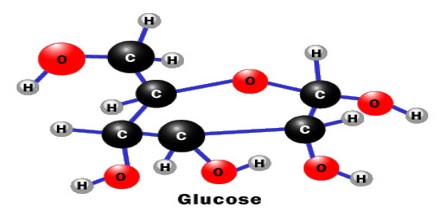
Common Uses for Glucose
Hypoglycemia can cause weakness, dizziness, anxiety, and confusion, and if not treated or there is a severe case, hypoglycemia can be deadly. If anyone has hypoglycemia then they would be able to take glucose pills that will be able to rise their glucose levels in their blood stream. Plants need food too and to get their food for survival they use a process called photosynthesis. In this process glucose is formed to create energy for the plant to live. Without this key ingredient food nor humans would not be able to survive. Glucose is considered a simple carbohydrate that provides four calories per gram. Having glucose in foods and drinks is an effective way to gain weight. Because glucose is good to taste buds, manufacturers take advantage of this so that medicine for kids tastes good.
